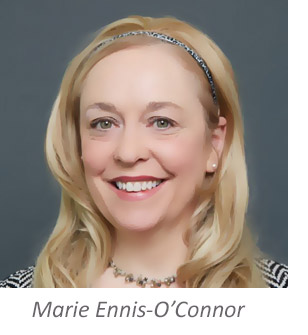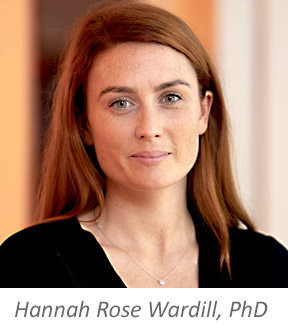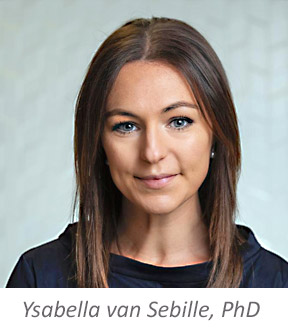2019 Social media is the process whereby people use online tools and platforms to share content and information. Social media platforms include websites where users share, exchange, discuss, and sometimes create or modify content (in the form of text, images, audio and video) in virtual communities on the Internet.
Times have changed since the founding of platforms like Facebook (2003) and Twitter (2006). Social media isn’t just “social” anymore. What started as a place to keep friends posted about our personal lives, sharing vacation and family photos, cat videos, and the like, has evolved to become an important way to reach clients, customers, and colleagues — and in the case of healthcare organizations, patients as well. Social media has become a powerful platform for disseminating best practices and the latest clinical and research findings. It is also rapidly becoming an extension of the patient-provider relationship.
Social media provides one of the most profitable ways to market products, but also to increase visibility, recognition, and networking opportunities. Moreover, social media provides the most cost-effective approach to wide dissemination of information. Whatever the target audience might be, social media affords a swift and inexpensive way to share information, promote communication, and develop credibility.
Social Media and Healthcare
At the MASCC/ISOO 2019 Annual Meeting in San Francisco, healthcare communications strategist Marie Ennis-O’Connor spoke on the topic of “Social Media in Healthcare: How to Communicate with Impact!” She reported that the time per day spent using the Internet (as of January 2019) ranges from over 5 hours a day in the Philippines to 2 hours, 20 minutes in Japan, with a worldwide average of nearly 3.5 hours. And, globally, social media accounts for nearly 25% of all time spent online. The IMS Institute for Healthcare Informatics reported in 2014 that between 70 and 75 percent of US consumers look to the Internet for healthcare advice, and 40 percent rely on responses from social sites. People use social media more than ever, said Ennis-O’Connor, maybe more than any other strategy, to make health and healthcare decisions. This includes choosing a doctor, seeking second opinions, coping with chronic conditions and chronic pain, complying with treatment, undergoing tests and procedures, approaches to diet, exercise, and stress management, and choosing health insurance.
In another 2019 Annual Meeting presentation (“Meet the Experts: Using Social Media”), Ysabella Van Sebille, PhD, noted that the recent boom in social media use has facilitated the exchange of information on an enormous scale. “Now, more than ever,” she said, “healthcare professionals have an obligation to ensure that reliable, evidence-based information is readily accessible. Communicating via social media is a hugely effective way to engage with patients, carers, policy makers, and peers. Establishing and curating an online presence is pivotal in communicating with impact and enhancing the provision of care on a global scale.”
So, what does all this mean for MASCC? Drs. Van Sebille and Hannah Rose Wardill, social media leaders in the MASCC Mucositis Study Group, stress the numerous ways that using social media can benefit MASCC and its members:
- Increase MASCC’s visibility
- Promote MASCC as a thought leader in cancer research
- Increase exposure and engage with stakeholders
- Maintain networks for communication and collaboration
- Share evidence-based knowledge
- Promote the concerns of MASCC in healthcare
- Establish online communities for collaborative supportive care research
In addition, sharing content on social media prompts readers to click through to the MASCC website, where they can find other information of interest and might even decide to become a member.
The responsible and strategic use of social media can also be of enormous benefit to patients.
The Independent (UK) reported in 2017 that misinformation about serious health conditions is often shared more widely than evidence-based reports on Facebook. Healthcare organizations and leaders have an obligation to do their part in countering healthcare misinformation with factual, evidence-based knowledge. “This isn’t an addition to your job. This is part of your job. This is where our patients are these days and this is where we need to reach them,” says Farris Timimi, MD, Medical Director, Mayo Clinic for Social Media. Social media is no longer seen as a frivolous activity, no longer just a way to pass the time online, but rather a powerful information and communication strategy — provided it’s used strategically.
What MASCC Is Doing
MASCC has made a commitment to using social media to advance knowledge of supportive cancer care, connect with professionals and patients alike, and increase its visibility as the prime international and multidisciplinary organization devoted to supportive care in cancer. To that end, MASCC’s Information and Communications Committee, led by Anna Boltong, PhD, has been working to further MASCC’s presence on social media platforms and educate members on the importance and best use of social media. This initiative is spearheaded by Drs. Hannah Wardill and Ysabella Van Sebille. Over the past two years, they and Dr. Boltong have overseen the development and dissemination of a Social Media Strategy and Twitter Quick Guide and provided training for MASCC members who need help getting started. Their efforts have resulted in an increased focus on social media at Annual Meetings and increased audience engagement on social media channels. During the 2019 MASCC/ISOO Annual Meeting, over 500 people engaged in conference-related conversations on Twitter. The #MASCC19 hashtag was associated with over 4,000 tweets (an average of 60 per hour) and over 7 million impressions, a theoretical maximum number of Twitter users it could have reached directly.
Watch for “MASCC and Social Media, Part II, Developing a Social Media Strategy” in the November issue of the MASCC Society News.
 Marie Ennis-O’Connor is a healthcare communications strategist and social media consultant and writer (www.hcsmmonitor.com). A board member of Mayo Clinic’s Social Media Network, she is also an internationally recognized speaker and writer on emerging trends in digital health and participatory medicine. Marie works with clients to create patient engagement strategies, co-design research, and increase clinical trial recruitment.
Marie Ennis-O’Connor is a healthcare communications strategist and social media consultant and writer (www.hcsmmonitor.com). A board member of Mayo Clinic’s Social Media Network, she is also an internationally recognized speaker and writer on emerging trends in digital health and participatory medicine. Marie works with clients to create patient engagement strategies, co-design research, and increase clinical trial recruitment.
 Hannah Rose Wardill, PhD, is an NHMRC Biomedical Research Fellow at the University Medical Centre Groningen, the Netherlands, and The University of Adelaide, Australia. Hannah coordinates an interdisciplinary program of translational research aimed at understanding and exploiting host-microbe interactions to predict and prevent some of the most debilitating complications of cancer therapy such as mucositis, graft versus host disease, and cognitive impairment. Hannah is a member of MASCC’s Information and Communications Committee and its Study Groups on Mucositis, Neurological Complications, and Pediatrics. She chairs the Mucositis Study Group’s Social Media Taskforce and has been extensively involved in the preparation of supportive care clinical practice guidelines.
Hannah Rose Wardill, PhD, is an NHMRC Biomedical Research Fellow at the University Medical Centre Groningen, the Netherlands, and The University of Adelaide, Australia. Hannah coordinates an interdisciplinary program of translational research aimed at understanding and exploiting host-microbe interactions to predict and prevent some of the most debilitating complications of cancer therapy such as mucositis, graft versus host disease, and cognitive impairment. Hannah is a member of MASCC’s Information and Communications Committee and its Study Groups on Mucositis, Neurological Complications, and Pediatrics. She chairs the Mucositis Study Group’s Social Media Taskforce and has been extensively involved in the preparation of supportive care clinical practice guidelines.
 Ysabella van Sebille, PhD, is the Program Facilitator for the Division of Health Sciences at the University of South Australia Online and a member of the Cancer Treatment Toxicities Group. She completed her PhD research on gastrointestinal toxicities of cancer treatment, with a focus on developing interventions. Dr. Van Sebille is a member of MASCC’s Mucositis Study Group and its Information and Communications Committee.
Ysabella van Sebille, PhD, is the Program Facilitator for the Division of Health Sciences at the University of South Australia Online and a member of the Cancer Treatment Toxicities Group. She completed her PhD research on gastrointestinal toxicities of cancer treatment, with a focus on developing interventions. Dr. Van Sebille is a member of MASCC’s Mucositis Study Group and its Information and Communications Committee.


